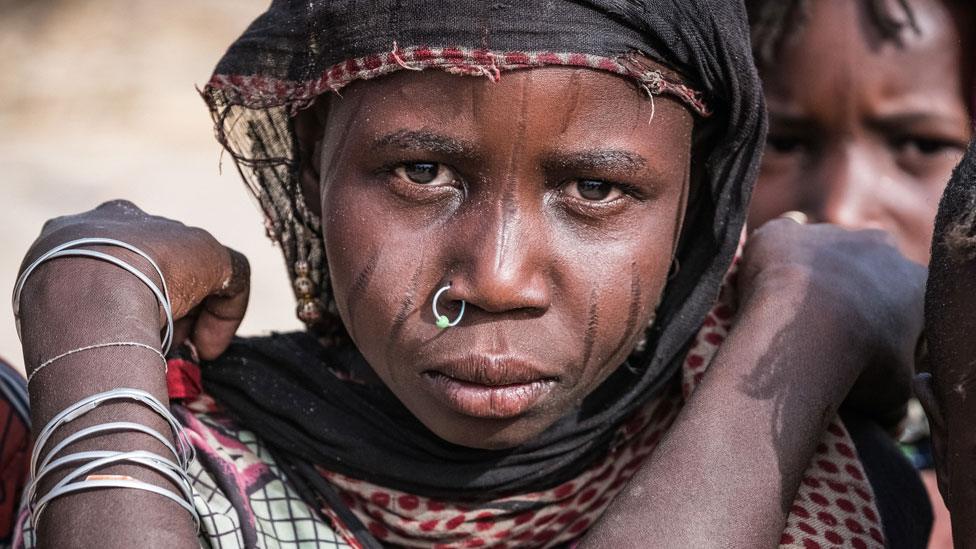Reaching 130 million girls with no access to school
- Published
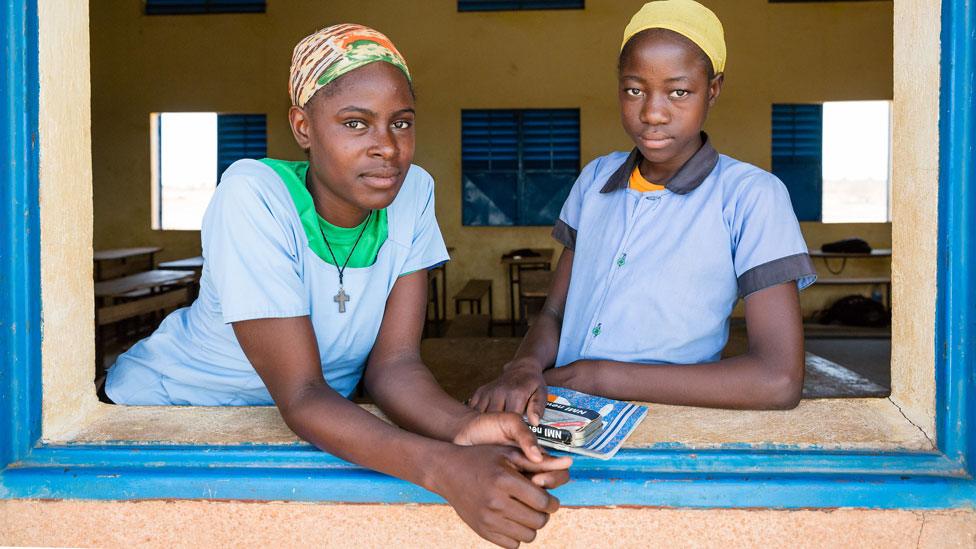
A project to keep more girls in school in Niger - when in many poor countries girls are likely to miss out
In the time it takes to read this story, about eight girls under the age of 15 will have given birth - mostly in the world's poorest countries - and many will never go back to school.
Julia Gillard, former Australian prime minister, is campaigning for the right of girls to stay in education - and wants to stress the sense of urgency.
There are 130 million girls who are completely missing out on school.
These are "the most marginalised and hardest to reach", says Ms Gillard.
She chairs the Global Partnership for Education (GPE), which raises funds in the developed world to support education in about 70 poorer countries.
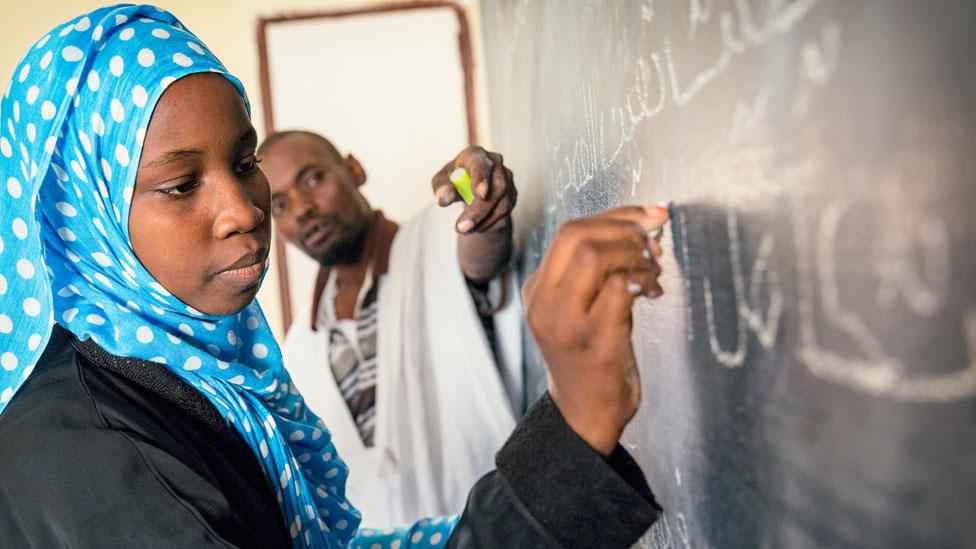
In Mauritania there has been funding to keep more girls in education beyond primary school
The UK government has been among the biggest backers, giving almost £1bn over the past 15 years.
A particular focus of the GPE has been to increase the number of girls in school - because in low-income countries, particularly in sub-Saharan Africa, girls are much more likely to miss out.
A report from the United Nations earlier this year warned that a third of the world's poorest girls, aged between 10 and 18, have never been to school.
"For many deeply impoverished families there are some very tough choices about whether they have the resources to send their girls to school," says Ms Gillard.
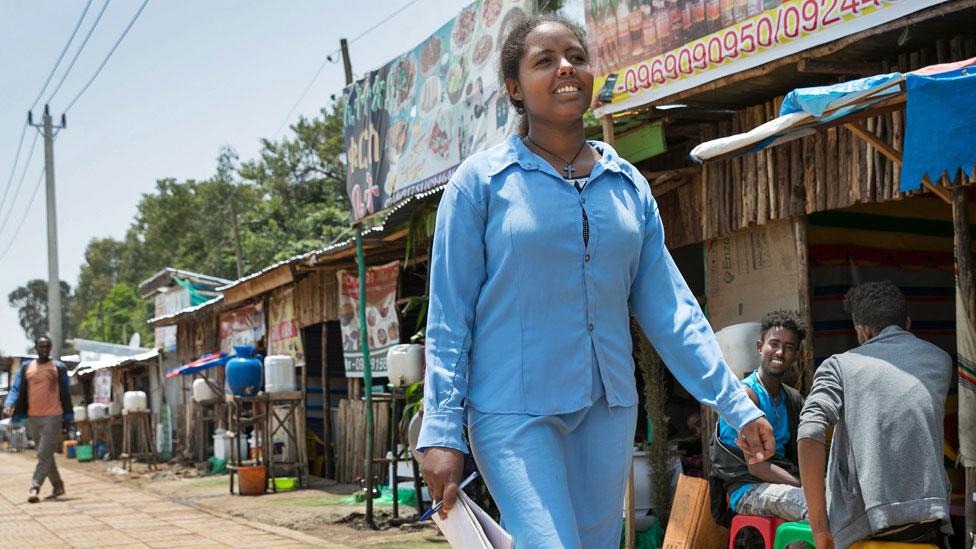
In Ethiopia there are projects to protect girls from sexual harassment as they go to school or college
There is a risk that girls are married off at a young age or kept at home to work, which might "free up an adult to go and earn an income to get food for the family".
Apart from the right of all children to an education, Ms Gillard says that getting girls to stay in school is the "keystone" for wider economic improvement.
Widening access to education for girls has a "multiplier effect" for communities - improving women's chances in employment, delaying marriage, making families more prosperous, and increasing the health of the next generation of children.
"If we want to hit our economic objectives for development, for peace and security, climate change - it can only be done if girls are in school and learning," says Ms Gillard.
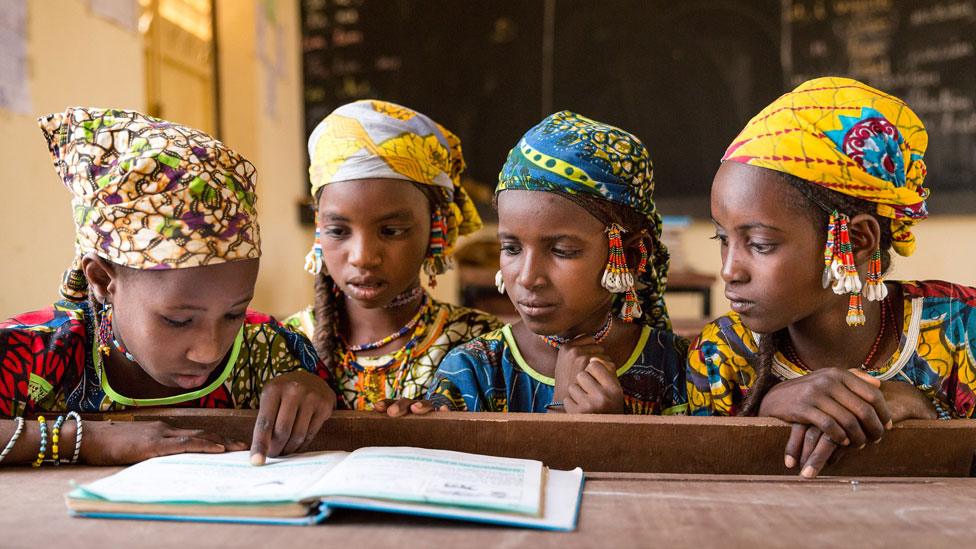
In Niger there has been to support to provide lessons and text books in local languages
As the world marks International Women's Day, she says funding through the GPE has made real progress in getting more girls into school in countries such as Kenya, Malawi and Afghanistan.
Ms Gillard has a high-profile ally in making girls' education a priority.
Boris Johnson, as UK prime minister and previously as foreign secretary, has called for every girl to be guaranteed access to 12 years of good quality education.
As he entered Downing Street - and in his party's election manifesto - Mr Johnson repeated his support for girls' education globally.
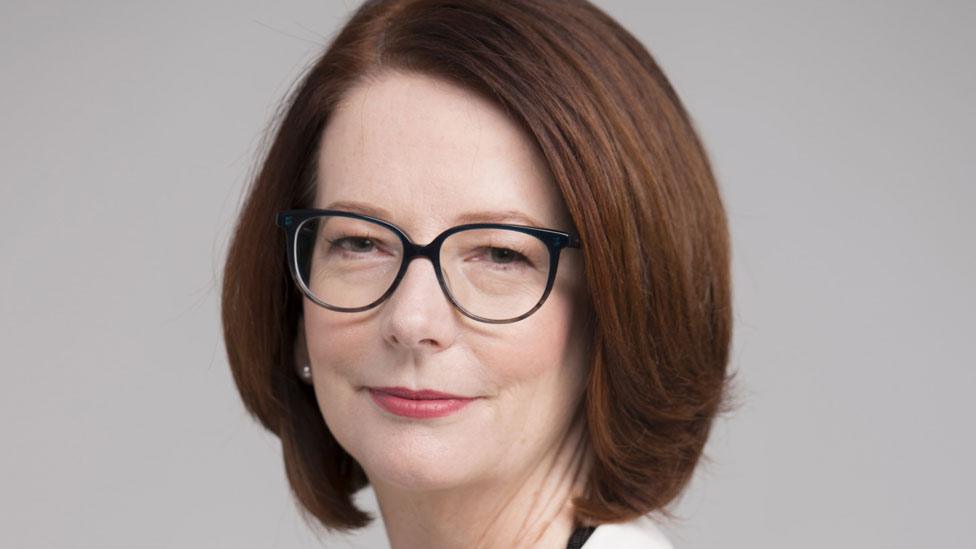
Julia Gillard says investing in girls' education is the keystone to development in poorer countries
He has described it as the "Swiss army knife" of development, because it has the potential to resolve so many problems.
Mr Johnson's commitment is an "absolutely genuine passion", says Ms Gillard. "He has seen the impact with his own eyes, and read the evidence."
Speaking to the BBC when he was foreign secretary, Mr Johnson said: "In countries where there is poverty, civil war, that have massive population booms, that are prey to radicalisation, the common factor is female illiteracy, the under-education of women and girls."
Now Ms Gillard wants the UK prime minister to make this argument to other G7 leaders.
Over the past 30 years, world leaders have made successive pledges on ensuring that all children have at least primary education - and these goals have been repeatedly missed.
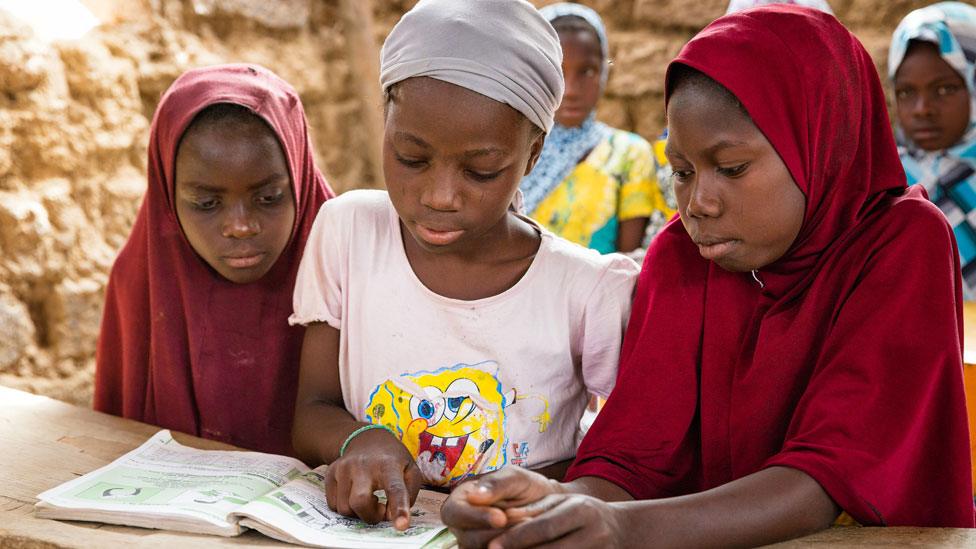
Despite decades of promises by world leaders, millions of children never even start school
War and conflict have compounded already existing problems for deprived communities in some of the world's most impoverished countries.
But if there is a fatigue or cynicism over international aid, Ms Gillard says there is a strong pragmatic argument for countries such as the UK to support poorer countries.
"In this globalised era problems don't stop at any nation state's borders," she says.
"Everyone is talking about this in the context of coronavirus - but there are all sorts of issues," says Ms Gillard.
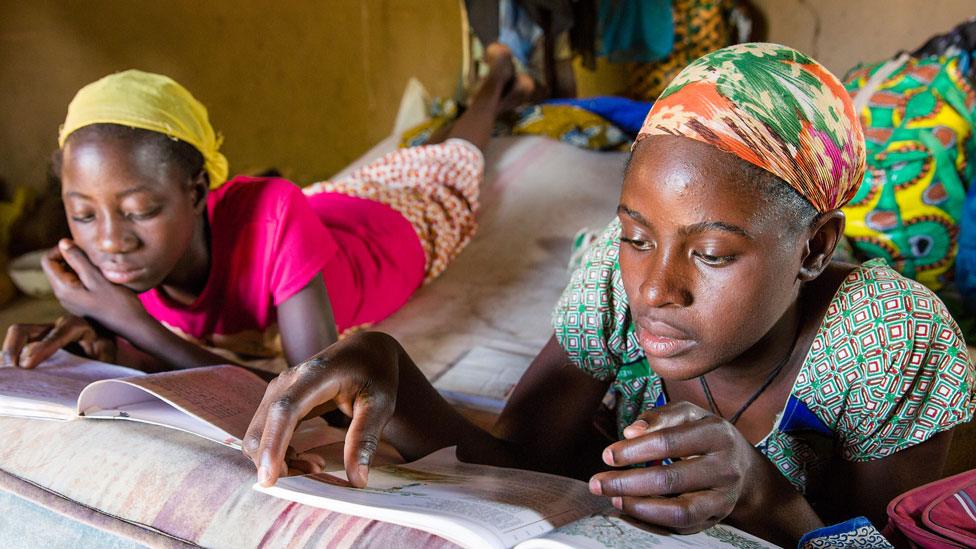
In a globalised world, says Julia Gillard, the problems of poverty and lack of education do not stop at national borders
The impacts of inequality, violence and extremism will spill over borders, she says.
And problems that can seem far away can quickly reach the shores of wealthier countries.
"It's a question of self-interest that education is going to improve chances," she says.
But the clock is ticking - and in the time it has taken to read this article about 100 children will have become refugees, according to Ms Gillard's timings, and only about a quarter are ever likely to reach secondary school.
In such difficult circumstances, she says: "If you miss the opportunity to get an education, those days don't come back round."
- Published20 January 2020
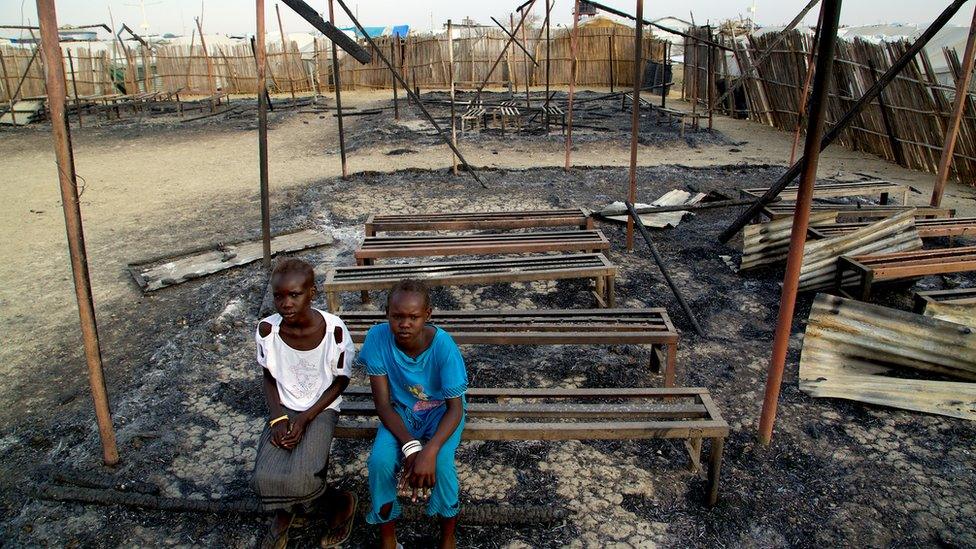
- Published8 March 2018
- Published11 October 2017
